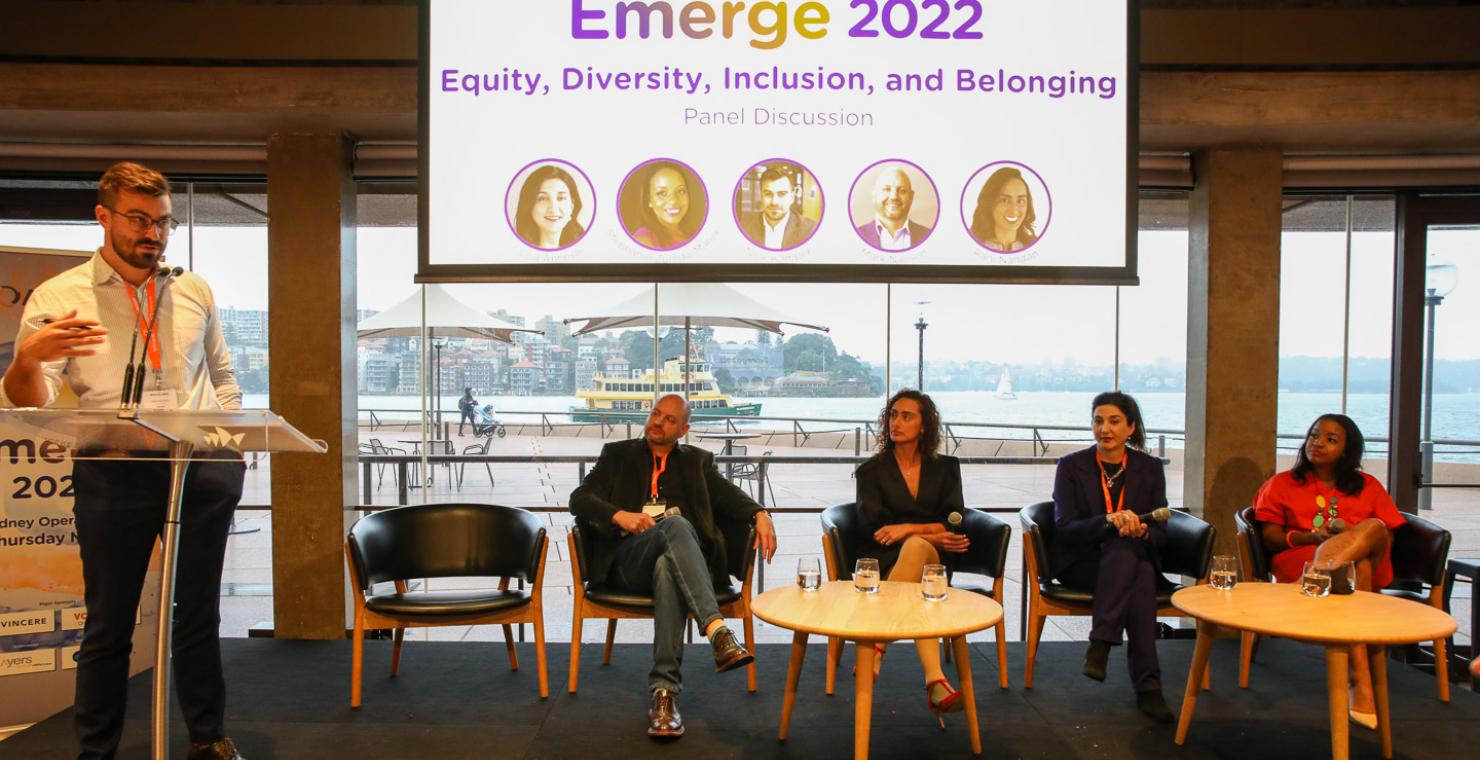
Recruiters can "convince" employers about diversity, or turn down work
This article first appeared in Shortlist. It is reproduced here with permission.
Recruiters are uniquely placed to "convince" employers of the benefits of more diverse shortlists, recruitment leaders say.
But, consultants need to first obtain "trusted advisor" status with their clients, Talent CEO Mark Nielsen told APSCo's Emerge 2022 conference in Sydney last week.
"If the consultants are basically phoning up a customer and saying, 'have you got any roles for me', that is not the type of relationship that you want if you're going to discuss things like D&I," he says.
"The first thing is to be in that position of being a trusted advisor, and also, once you're there, really make sure that you're walking the walk."
This is where recruiters need to be firm in their core values when working with clients, he adds.
Also speaking at the event, PageGroup APAC diversity, equity, and inclusion director Rani Nandan says that "historically, and certainly still in some pockets today, recruiters do just go in from a transactional lens and say, 'right, tell me what you want'".
"We really need to be working much more proactively with our customers, being trusted advisors, and being seen to own it and set an example ourselves."
For example, PageGroup is working to ensure its staff experience inclusion firsthand, and can share their experience with clients from a "genuine place", she says.
"We might not be there yet, but I can at least talk to you about it from my own experience, and then I can talk to you about how we can drive change because... it's an ongoing thing," Nandan explains.
"This is not something that's solved overnight and it's not something that any one organisation has completed or closed the gap of."
Nandan adds that building diversity into a recruitment organisation as part of its core values also means being "willing to walk away from jobs and/or clients".
PageGroup has experienced a number of instances where a consultant has felt empowered to say, "you know what? I don't agree with the approach that you're taking here... therefore, rather than trying to convince you, we don't feel like there is the opportunity to convince and influence and be a trusted advisor", she says.
Defining diversity and inclusion
Meanwhile, Diversity Council Australia CEO Lisa Annese told the conference that recruiters and employers need to recognise the differences between 'diversity' and 'inclusion' in a DEI strategy.
While it is common knowledge what diversity involves, "inclusion is about getting that mix of people to work", she says.
"It means four things – it's a workplace that is respectful, where people are safe, it's a workplace where people are humanly connected, so it's often you'll hear the phrase 'belonging', but it's also a workplace where people have opportunities for progression, and they're where their jobs are designed so that they add value.
"All four of those factors need to be in place for an organisation to measure high on inclusion scores."
Increasing inclusion, not just diversity, Annese says, will drive rapid increases in productivity and innovation, as well as reduce absenteeism across the whole organisation.
"It's important to recognise that inclusion is a process of making those things work, and the more diverse your workplace becomes, the more complex this is," she says.
"That's really important, so you have to invest in the capability of individuals to be able to do it... we have to learn skills to be able to do this better."

